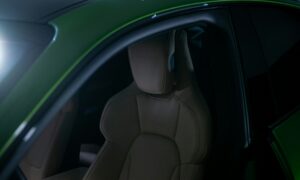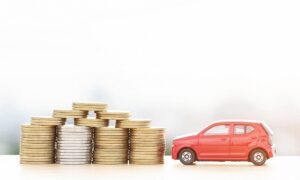When it comes to acquiring a new vehicle, individuals often face a crucial decision: whether to lease or buy. This decision can significantly impact personal finances, lifestyle, and long-term plans. Both leasing and buying have their unique advantages and disadvantages, making the choice highly dependent on one’s circumstances and priorities.
For those looking to explore their options, cdjr franklin offers a comprehensive range of vehicles and flexible leasing and buying plans. Visiting this can provide valuable insights and assistance in making the best decision for your automotive needs.
This article aims to provide a comprehensive comparison between car leasing and buying, highlighting key considerations to help you make an informed decision.
Financial Considerations
One of the most significant factors influencing the decision to lease or buy a car is the financial implications. Leasing a car typically requires a lower upfront cost compared to buying. When leasing, you usually pay a lower down payment and lower monthly payments, as you are essentially paying for the car’s depreciation over the lease term rather than the vehicle’s entire value. This can make leasing an attractive option for those looking to minimize their monthly expenditures.
On the other hand, buying a car involves higher upfront costs, including the down payment and monthly loan payments. However, these payments contribute towards owning the vehicle outright once the loan is paid off. While monthly payments for a car loan might be higher, the car becomes an asset that you can sell or trade-in later. Over time, owning a car can be more cost-effective than leasing, especially if you plan to keep the car for several years.
Flexibility and Commitment
Leasing offers more flexibility compared to buying, particularly if you prefer driving a new car every few years. Lease terms usually last between two to four years, allowing you to switch to a new model frequently without the hassle of selling or trading in your old car. This is advantageous for those who enjoy having the latest features and technologies in their vehicles.
Conversely, buying a car involves a longer commitment. Once you purchase a car, you’re likely to keep it for a longer period to justify the initial costs. This can be ideal for individuals who prefer stability and do not want to be tied to continuous car payments. Additionally, owning a car gives you the freedom to modify or customize it according to your preferences, something that is typically restricted in leased vehicles.
Mileage and Usage
Mileage limitations are a crucial consideration when deciding between leasing and buying. Lease agreements often come with strict mileage limits, usually ranging from 10,000 to 15,000 miles per year. Exceeding these limits can result in significant penalties at the end of the lease term. Therefore, leasing may not be the best option for those with long commutes or who frequently take long trips.
In contrast, when you buy a car, there are no mileage restrictions. You can drive as much as you want without worrying about extra fees. This makes buying a car a better option for high-mileage drivers. Additionally, if you tend to keep your cars well-maintained, owning a vehicle allows you to accumulate mileage over a longer period without financial penalties.
Maintenance and Repairs
Maintenance and repair costs can also differ significantly between leasing and buying. Most leased cars are under warranty for the duration of the lease term, meaning many repairs and maintenance services are covered, reducing out-of-pocket expenses. This can be a significant advantage, as it provides predictable costs and fewer unexpected expenses.
However, when you own a car, you are responsible for all maintenance and repair costs once the warranty expires. These costs can add up over time, particularly as the car ages. On the flip side, car owners can choose where to service their vehicles and have the freedom to perform minor repairs and maintenance themselves, potentially saving money.
Depreciation and Resale Value
Depreciation is a critical factor in the lease vs. buy decision. When you lease a car, you are not affected by the vehicle’s depreciation since you do not own it. At the end of the lease term, you simply return the car to the dealer. This can be beneficial as it protects you from the risk of losing money due to the car’s declining value.
Buying a car, however, means you bear the brunt of depreciation. New cars can lose a significant portion of their value within the first few years of ownership. If you decide to sell or trade in the car later, its depreciated value will impact your return on investment. However, if you keep the car for an extended period, the depreciation becomes less significant over time, and you may still retain some resale value.
Tax Benefits
Tax considerations can also influence the decision between leasing and buying. For business owners and those who use their car for work, leasing can offer certain tax advantages. Lease payments can often be deducted as a business expense, which can reduce taxable income. It is important to consult with a tax professional to understand the specific tax benefits available in your situation.
Buying a car can also offer tax benefits, particularly through deductions related to interest on auto loans. However, these benefits may not be as significant as those available through leasing for business purposes. Again, professional advice is recommended to maximize any potential tax advantages.
Conclusion
Deciding whether to lease or buy a car is a complex decision that depends on various personal and financial factors. Leasing can be advantageous for those seeking lower monthly payments, minimal maintenance costs, and the flexibility to drive a new car every few years. However, it comes with mileage restrictions and no ownership equity.
Buying a car involves higher initial costs but provides long-term financial benefits, freedom from mileage limits, and ownership of an asset. Ultimately, the choice between leasing and buying should be based on your individual lifestyle, driving habits, and financial situation. By carefully considering these factors, you can make a decision that aligns with your needs and preferences.



































